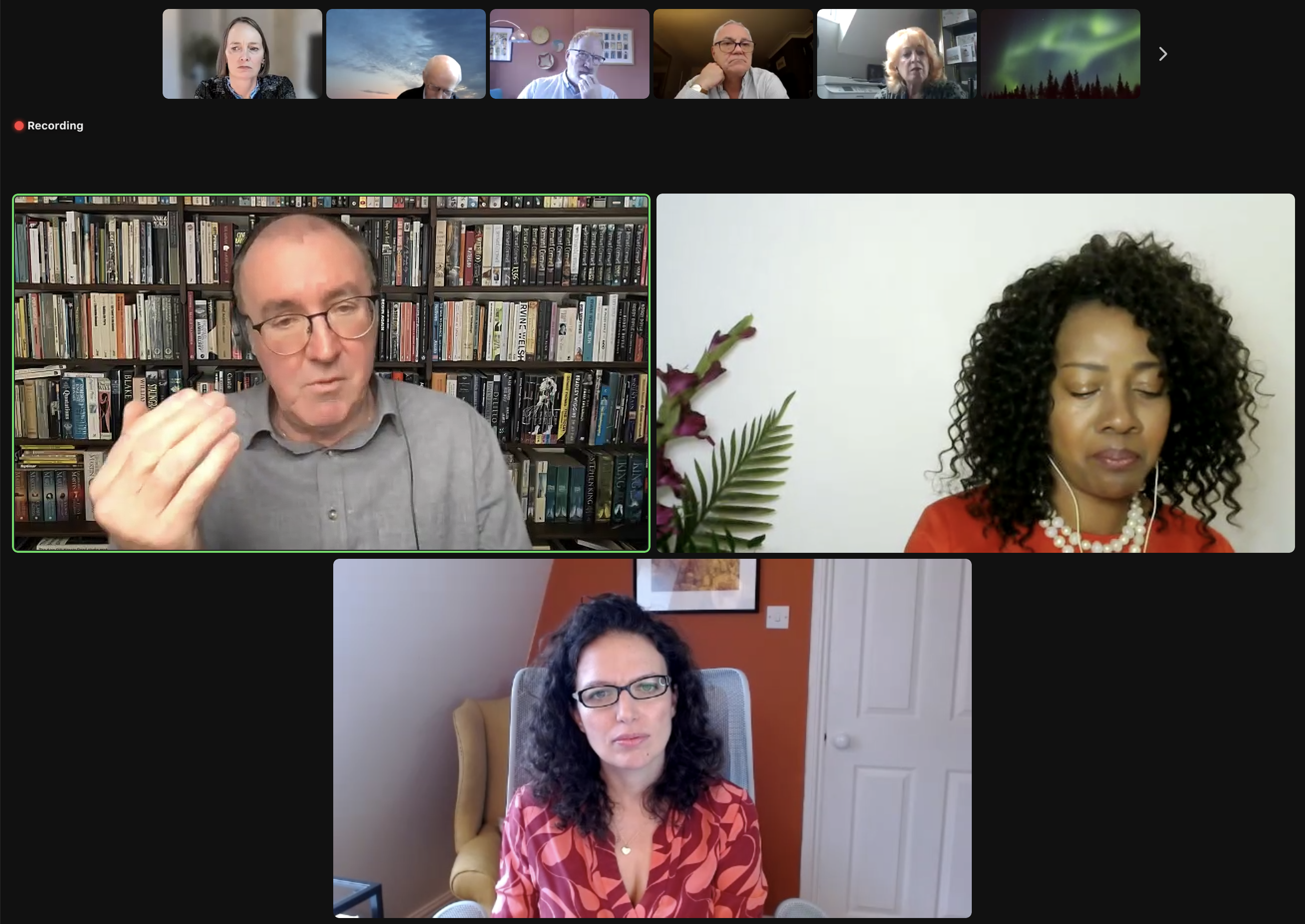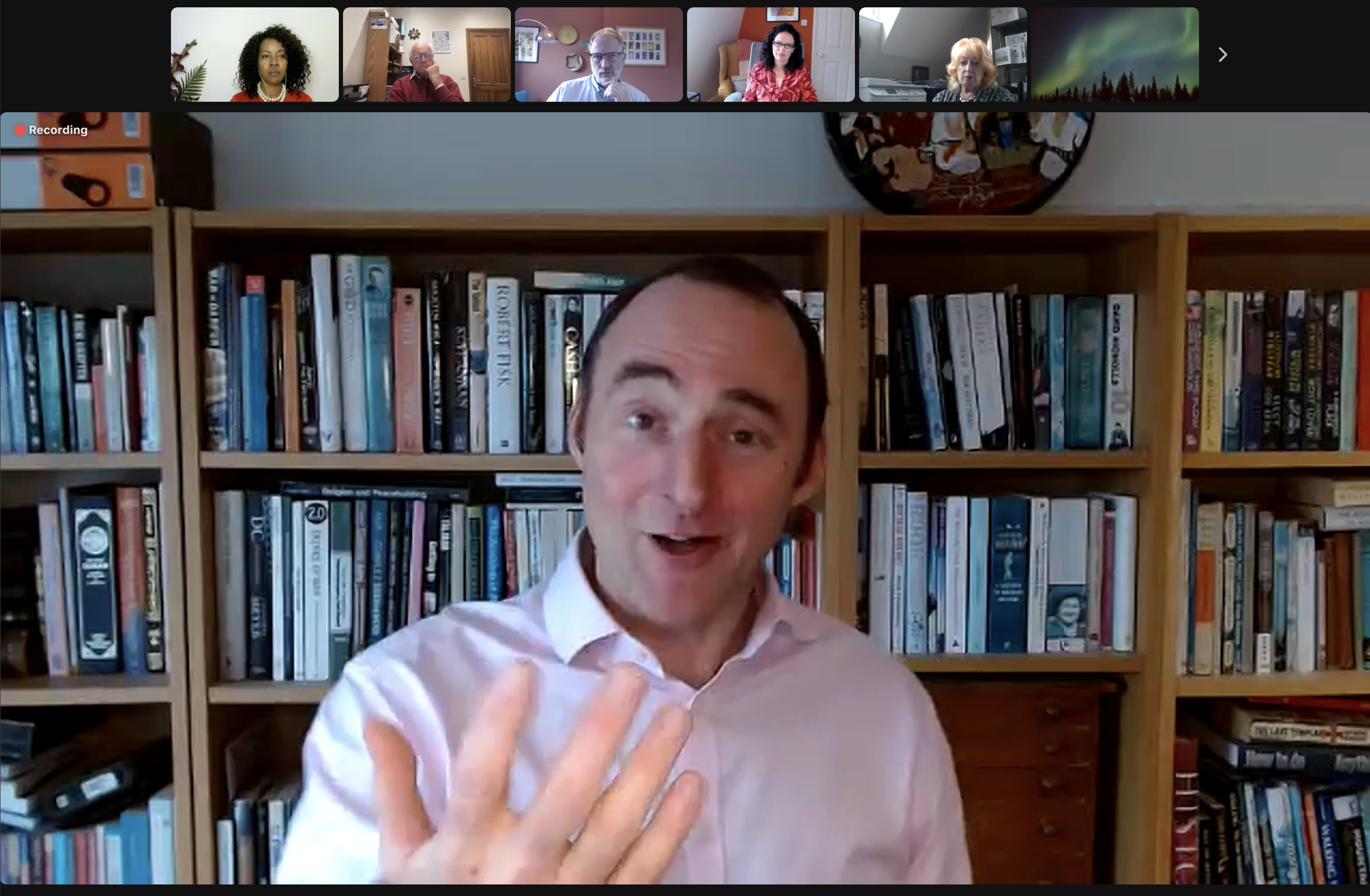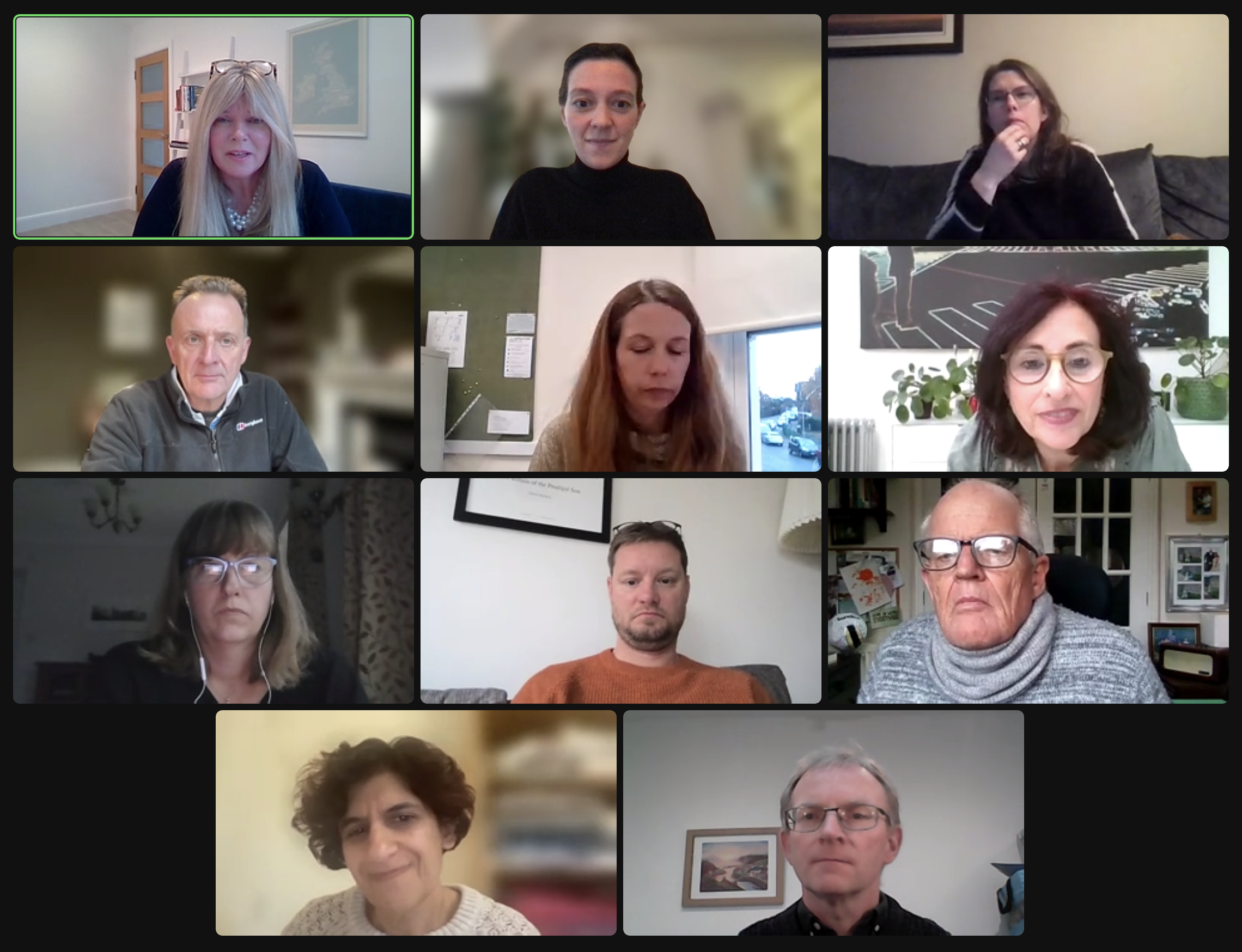CMC Conference 2023 – Day 2: Review by Ben Harper
CMC Conference 2023 – Day 2: Review by Ben Harper
Discover Ben Harper’s insightful review of Day 2 at the CMC conference 2023, covering diverse topics from restorative schools to peace building in Sudan. Ben is the new National Peer Mediation Co-ordinator at Quakers in Britain and brings a fresh perspective to the table as a first time CMC conference attendee. He shares his key take aways from the sessions he attended like mediation training in prisons, the cost of community conflict, and mediation in the NHS.
BY BEN HARPER
This was my first CMC conference and it was great to be among those who are involved in work to build peace in many different ways. Our day on Thursday kicked off with a presentation by Chris Straker who is involved in work to build restorative schools. Chris brought his experience of being the Headteacher in what was once described by Ofsted as one of the ‘worst schools in the country’, and shared with us how he transformed this school through an embracing of a restorative approaches.
As an educationalist, I found his talk affirming, challenging, inspiring. I appreciated Chris’ humility in recognising the ‘poor practice’ he had once been involved in, and an apparent openness to continually learn from new experiences and contexts. Chris also reflected on the value of an increased understanding of neuroscience, and what this has added to his understanding of restorative approaches in school. Chris shared with us the important facets of a restorative school, and provided some critique of the didactic approaches to learning that are still favoured by some rather than the more dialogic approaches which give respect, voice, agency to the individual.
As Peer Mediation National Co-ordinator, I was encouraged by Chris’s advocacy for Peer Mediation. He cited the support given by the Finnish Government for schemes to be introduced in schools there, and the 95% positive outcomes to conflict that such schemes have produced. Finally, it was important to reflect on the importance of recognising that children, young people and their families live in a wider eco-system, and the benefits that can come from police, family teams, social workers and schools all working together, using restorative principles and practices.

Peter Marsden followed on from this talk with a presentation about ‘Learning from Mediating in Armed Conflicts’. Peter spoke passionately about his work in Sudan that he and his team have been involved in over a number of years. He told us about Tabitha who is a youth community activist in the Abyei area of Sudan/South Sudan. Her husband was shot dead by UN Peacekeeping forces because they believed him to be inciting violence when in fact he was appealing for calm. Peter told us about how Tabitha had channelled all of her grief and pain into being a peace builder with Concordis International.
Over time, this organisation has created stable peace in the Abyei region of Sudan which was previously much contested by those in both the North and South. These days Abyei is a thriving place that capitalises on trade from both the north and south. When fighting in Sudan broke out again earlier this year, a key leader from this area counselled his people to seek solutions to their conflicts rather than to weaponize, keeping war out of Abyei. Peter’s talk was inspiring and spoke to the benefits of a long-term commitment that successful peace building requires.

I then attended the workshop on ‘The Cost of Community Conflict’ which sought to explore some of the themes drawn out in the Mediation Hertfordshire report authored by Victoria Harris. It was interesting to hear how the number of community mediation services have reduced significantly since the early 2000’s, yet the need and demand for this kind of work is increasing. Victoria shared how her previous report ‘Transforming Community Conflict’ had succeeded in raising the profile of community mediation but not gained the political traction she had hoped for. This new report aims to give more weight to the argument that community mediation provides genuine financial benefit to Government and public services. In her report, and this workshop, Victoria highlighted examples from Norway and Singapore where the governments there have sought to make mediation more available.
I was especially struck by the statistic that one fifth of GP appointments are for non-medical needs with the reasonable assumption that at least some of this number will be in some way related to conflict. Victoria spoke with optimism about the future for community mediation, and highlighted the work of the CMC Community Mediation Working Group who are working together to ensure greater accessibility to community mediation as well as to support the resilience of the sector.

“I found it hugely beneficial to hear about mediation in so many different contexts, and came away all the more inspired to do the work I do on a daily basis.”
What followed were a number of shorter talks, all of which maximised their time to showcase some excellent work. Jenny Owen shared about her work at University College London Hospital, providing mediation and training in conflict to staff in what is an increasingly pressurised environment. Jenny explained that her role fits within a wider NHS agenda known as the ‘Civility & Respect Agenda’ which is aiming to reduce rudeness and increase kindness among staff. This agenda follows research that suggests rudeness between staff can significantly impact on mistakes in care. It was also fascinating to reflect that the cost of dealing with bullying incidents within the NHS is estimated to be as much as £2.3billion per year. The work that Jenny does aims to prevent the need for bullying claims to be made by intervening early and stop things from escalating.
Brian O’Neill and Helen Harnett, two colleagues from Ireland specialising in Elder Mediation, talked about taking a strengths-based approach to working with older people and their families and the importance of ensuring that older people have a voice in the later part of their lives. The session also looked at the preventative value of elder mediation which in facilitating difficult intergenerational conversations, often an issue in blended families, can prevent the distress of a future contentious probate claim.
Finally, Colin Bourne from Yorkshire Mediation spoke about his work in prisons, training staff and prisoners in mediation skills. The scheme has proved hugely successful and Colin gave some impressive stats about violence reduction that had occurred post the training. It was good to hear that other prisons are now making enquiries for similar schemes in their settings. He described his work in the prison as being one of the most rewarding things he has ever done.
As a newbie to the mediation scene, whose focus is primarily on peer mediation, I found it hugely beneficial to hear about mediation in so many different contexts, and came away all the more inspired to do the work I do on a daily basis.

With a career spanning the disciplines of teaching, youth work, mentoring and coaching, Ben Harper is passionate about supporting those who work with children and young people to be well, and do well. Ben is the newly appointed Peer Mediation National Co-ordinator for Quakers in Britain and plays a key role in supporting the CMC Peer Mediation Working Group.



